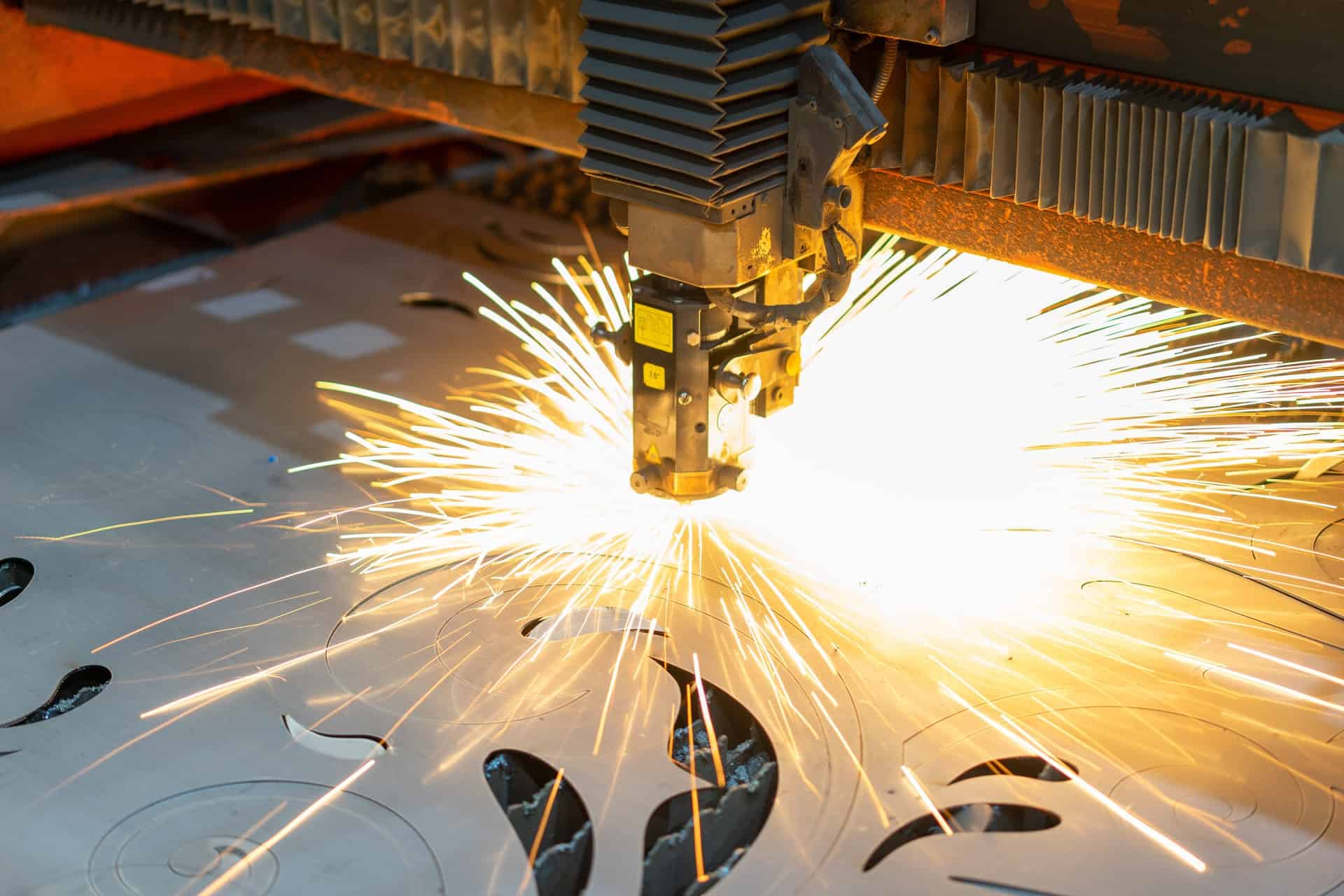



Revolutionized is reader-supported. When you buy through links on our site, we may earn an affiliate commision. Learn more here.
Lean manufacturing is an approach that involves several ideals, including continual improvement, enhanced value and waste reduction. Manufacturers have successfully used it for decades, starting with the Toyota plant that made it famous.
However, company leaders who want to implement the lean method or improve their implementation now have even more resources. They can use smart manufacturing technology to uphold lean principles and highlight areas of progress or room for improvement. Here are some exciting examples of how the combination of lean manufacturing and intelligent technology can position companies for the future.
Since lean manufacturing focuses on process improvement, people need access to the information that shows them what’s going well or not meeting expectations. It’s also crucial that decision-makers refer to data that’s as current as possible. Basing a choice on statistics collected a month ago could lead to an irrelevant approach.
Fortunately, many manufacturers have improved their data capture methods, even if they don’t follow lean manufacturing principles. That’s primarily due to investments in the Industrial Internet of Things (IIoT). Connected sensors enable getting real-time insights. Some company leaders also feed IIoT data into predictive analytics models to see what’s likely to happen if things don’t change.
The IIoT also creates opportunities to extract data from several sources. Take the example of an aerospace and electronics supplier. That company automated IIoT sensors to gather data from an integrated statistical process control (SPC) system, a manufacturing execution system (MES) and enterprise resource planning (ERP) software. Doing that made the business respond 75% faster to issues while showing customers it achieves reliable uptime levels in a lights-out facility.
Creating an automated data collection system also helps managers see where process bottlenecks and quality control issues exist. Such information is crucial for succeeding with lean manufacturing. Otherwise, decision-makers may believe operations occur smoothly when that’s not necessarily the case.
A company leader that thoroughly understands lean processes knows the waste reduction aim extends to making the best use of people’s talents. For example, if a highly qualified engineer spends most of their workday filling out forms instead of working on product improvements, that’s arguably not the best use of their skills.
Many manufacturing plants that have practiced the lean methodology for a while use andon boards to provide production alerts. Such systems confirm assembly lines are operating as normal or experiencing problems. Some andon boards include a feature that lets someone pause production to correct an issue. However, reporting about such production issues still happens manually in many cases.
However, advanced communications systems can automate much of the reporting process. When that happens, people have more time for valuable, rewarding tasks. There’s also a reduced chance of them making errors. Suppose an IIoT system gathered data about when a machine failure stopped a production line. It could auto-populate much of the necessary information for the employee that first noticed the issue. That makes the data more reliable because it comes directly from a connected sensor.
A company could also cut down on manual tasks by investing in autonomous mobile robots (AMRs). Those machines excel at bringing items to the right places. An assembly line worker might notice that supplies at their station will soon run out. However, instead of stopping their task to get more, they could trigger an AMR to do it. That’s a great example of how smart tech can save time for workers while simultaneously preventing disruptions.
A significant goal for companies practicing lean manufacturing is to increase the perceived value for the customer. Getting to the bottom of problems that affect quality is an excellent way to do that. Statistics show that 85% of quality issues stem from issues with processes and materials. When manufacturers combine lean with smart tech, it becomes easier to identify and fix anything that could or does cause a decrease in quality.
Perhaps a manufacturer suddenly receives complaints from multiple customers regarding a recently dispatched product batch. Smart manufacturing products allow referring to data from when those items came off the production line. It may show that a misaligned machine or a forgotten step resulted in problems that quality control personnel overlooked before approving the items for distribution.
Customers may also become upset over unforeseen issues that cause manufacturers to miss deadlines. For example, if a company repeatedly provides products late due to equipment failures, clients could eventually decide to end their business relationship. Smart manufacturing offerings can provide the extra visibility needed to stop shutdowns and anything else that could cause costly delays.
As Bob Argyle, chief customer officer at Leading2Lean, explained, “Lean manufacturing really is about making problems visible, addressing problems and solving problems. Anything that can help you do that more efficiently is good.”
Global automotive component manufacturer Denso is one of Toyota’s biggest suppliers. It has made numerous advances to its lean practices over the years by installing smart technologies. Raja Shembekar, vice president of Denso’s North American Production Innovation Center, is in charge of how the company uses the IIoT. Many of his decisions directly support using lean manufacturing more effectively.
He recalled an example of using IIoT sensors on fans that maintained a constant temperature inside the company’s brazing ovens. They’re necessary for making aluminum heat exchangers. Since fan failures take 36 hours to resolve, the Denso team was especially eager to prevent them.
Shembekar described an incident where the company’s data scientists said sensor information indicated a fan would break down in 58 hours. They recommended replacing the fan, but maintenance personnel doubted the data. “Maintenance did not believe it. But we asked them to change it anyway. They took the fan out. Half the blades on the fan had disintegrated. They were totally shocked that they had no idea this was happening, and we could provide that prediction.”
Manufacturers can also make the most of lean principles by using tech to ensure certain responsibilities don’t occur prematurely. For example, if a person performs an ongoing task at a manufacturing plant too often, that’s an issue with wasted time. IIoT sensors can play important roles in ensuring duties are completed at the correct times.
Just-in-time manufacturing focuses on only producing goods on a schedule aligned with customers’ needs. That approach prevents manufacturers from having too much inventory. Using sensors to facilitate when tasks are completed works similarly because people don’t carry out those responsibilities too early or late. They only engage in them precisely when necessary.
One solution for manufacturers involves using sensors to inform people when to empty the waste bins located throughout a factory. The alternative is that employees check them on set schedules. In that case, they’ll likely find some overflowing or close to it while noticing that others don’t need attending to for at least another several hours.
Besides telling people when to visit the bins that need servicing, this system has a route-planning component that tells them the most efficient paths to reach each necessary waste receptacle. This setup also helps manufacturers embrace the 5S principles, which relate to cleaning and organization to achieve a productive and user-friendly work environment.
Users of this smart waste system can also set parameters for when and how people respond to sensor requests. For example, a person might be prompted to empty a certain bin but see accompanying information that says they can do it within an hour of receiving the notification. Alternatively, the system might specify that people can collect certain disposed materials simultaneously on their routes but that other items must be gathered separately.
These examples show that smart technology does not eliminate lean principles or make them unnecessary. Instead, it can help manufacturers get even better results. When workers can reduce their manual tasks and managers have ongoing access to real-time data, it becomes easier to practice the lean approach and reap the rewards.
No matter if a company’s workforce has used lean manufacturing for years or only implemented it a few months ago, advanced technology makes sense for today’s companies.
Revolutionized is reader-supported. When you buy through links on our site, we may earn an affiliate commision. Learn more here.


This site uses Akismet to reduce spam. Learn how your comment data is processed.